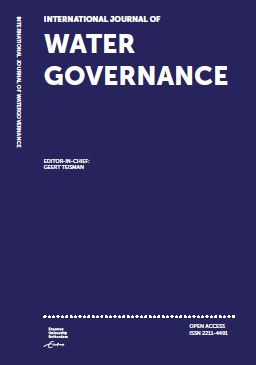The effectiveness of multi-stakeholder dialogues on water
reflections on experiences in the Rhine, Mekong, and Ganga-Brahmaputhra-Meghna river basins
Keywords:
multi-stakeholder dialogues, effectiveness of dialogues, dialogue strategies, water resources management, water resources development, Rhine Basin, IJsseldelta, Mekong Basin, Ganga-Brahmaputhra-Meghna Basin, Ecosystems for LifeAbstract
Multi-stakeholder dialogues aim to create and support spaces, in which, meaningful conversations
can take place among diverse stakeholder groups. A key notion is that dialogues can inform,
and help shape, more formal negotiation and decision-making processes; by bringing in a wider
range of perspectives on needs, impacts and options, and having them deliberated openly. We
studied three different dialogues about water resources management and development issues, in
three parts of the world: The Rhine, Mekong, and Ganga-Brahmaputhra-Meghna river basins.
In each case, the primary unit of analysis was a particular dialogue or cluster of closely related
dialogues, while recognizing that these were triggered by different factors (context related), and
usually part of a larger process. A set of shared questions were used to guide the analysis of each
case, covering initiation, format, content, and outcomes. Effectiveness was evaluated in terms of
evidence of meaningful conversations, shared understanding, and influence on negotiations or
decisions. Effectiveness of dialogues is clearly dependent upon not just the quality of participation
and facilitation, as is widely recognized, but also on the preparation and follow-up actions
by conveners and participants around main events. It also appears that, contextual factors may
modify substantially the forms and effectiveness of common dialogue strategies, which deserves
further systematic exploration. This study shows it is possible to draw comparative insights about
the dialogues, by using relatively simple questions about principle events.
Downloads
Downloads
Published
How to Cite
Issue
Section
License
Copyright (c) 2017 https://creativecommons.org/licenses/by/4.0/

This work is licensed under a Creative Commons Attribution-NonCommercial 4.0 International License.


